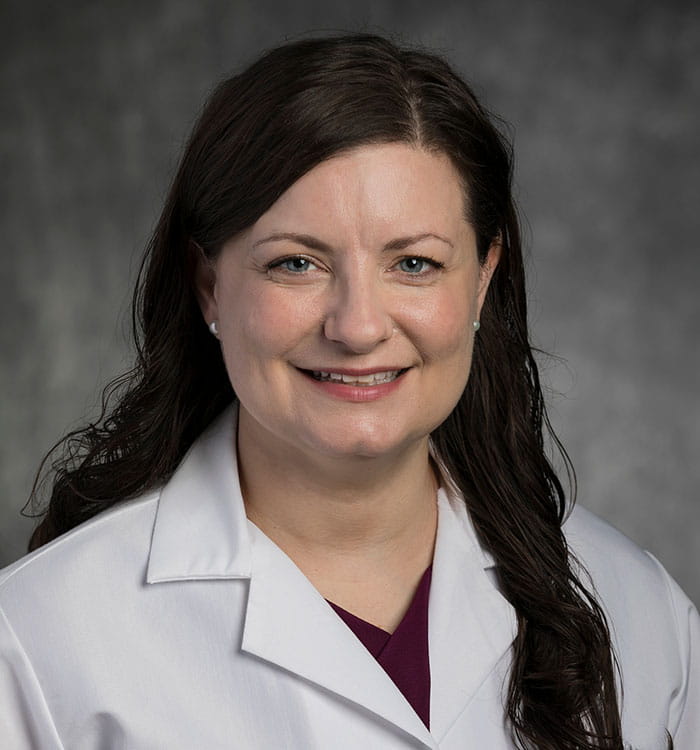Normalizing Patients' Stressful Experiences Key for Providers During the Pandemic
September 24, 2020
UH Clinical Update | September 2020
A Q&A with new UH psychiatrist Heather Wobbe, DO
 Heather Wobbe,DO
Heather Wobbe,DOQ: Tell us about your practice. What are the most common issues that you treat? What approaches do you use? Do you patients tend to fall into a certain demographic category, or do they vary?
A: I enjoy treating a variety of psychiatric diagnoses and demographic groups. I strongly identify as a generalist psychiatrist and will reach out to my sub-specialist colleagues for their insights if needed. In my practice, I try to take a holistic approach to mental health and will often recommend non-pharmacological treatments in addition to, or in lieu of, medications. I also try to normalize the experiences of my patients. These are stressful times for everyone, and many of the emotions they experience are a normal part of life when coping mechanisms are over-taxed. With these patients, I try to help them strengthen their coping skills so they can get back to living their best lives.
Q: You did your residency training in psychiatry at UH Cleveland Medical Center, as well as fellowship training in public and community psychiatry. What about that experience made you want to stay here at UH to become part of the medical staff?
A: I chose to stay at UH after completing my training because of the people. Working with a team that is so dedicated to helping make their community a better place is so inspiring…and my admiration for my colleagues only grew during this recent COVID-19 crisis when I watched everyone pull together to figure out how to support our patients and each other during this unprecedented event.
Q: Tell us more about your fellowship in public and community psychiatry.
A: In the final year of my psychiatry training at UH, I had the opportunity to complete a concurrent fellowship in public and community psychiatry. This non-clinical fellowship provides additional education and training surrounding a variety of issues within current psychiatric practice including access to care, advocacy, interprofessional teamwork and leadership, and health economics. It is designed to help psychiatrist develop the skills necessary to take a leadership role within their communities.
Q: How are you seeing patients during the pandemic?
A: I am physically located at the W.O. Walker building in University Circle, but have been seeing most patients remotely due to the current pandemic. I’ve found that for most patients, virtual visits work just fine…and in some cases actually improve access to care as it is easier to step away from work for a set period of time than it is to drive across town for an appointment.
Q: What are some emerging trends in psychiatry that we would be interested to know? How are these trends affecting your practice?
A: This is an exciting time for psychiatry! We have some new biological treatments, such as ketamine infusions and transcranial magnetic stimulation, which are helpful for some of our treatment-resistant cases. Additionally, we are in the process of changing our model of practice at UH to improve access to mental health care – helping to ensure that patients receive the right care at the right time. This is an initiative near and dear to my heart and I’m thrilled to be a part of it.
Q: Creating a good patient experience is so important at UH. What are some concrete steps that you take with your patients to make sure they’re having the best possible experience with the UH health system?
A: I do my absolute best to be responsive to my patients’ needs. I make every effort to have my clinic run on time, to provide timely answers for my patients if questions arise between appointments, and to be proactive about managing their care behind the scenes in between our appointments.
Q: We hear a lot about the mental health effects of the COVID-19 pandemic. Are you seeing that in your practice? What would be your advice to other UH providers in dealing with their patients for how to get through these challenging times?
A: As a new physician at UH, I’ve been seeing a lot of new patients recently – many of whom are seeing a psychiatrist for the first time due to the mental health effects of the COVID-19 pandemic. People’s coping skills are truly being tested these days in so many ways. I think an important first step that all health care providers can take is to normalize these experiences – it’s “normal” to feel stressed in stressful situations. Then, I recommend working with the patient to see what coping skills they have and how they can strengthen these to get through these challenging times.
Dr. Wobbe sees patients at the W. O. Walker Building in Cleveland, Ohio, to make a referral, please call 216-844-2400.
Tags:


